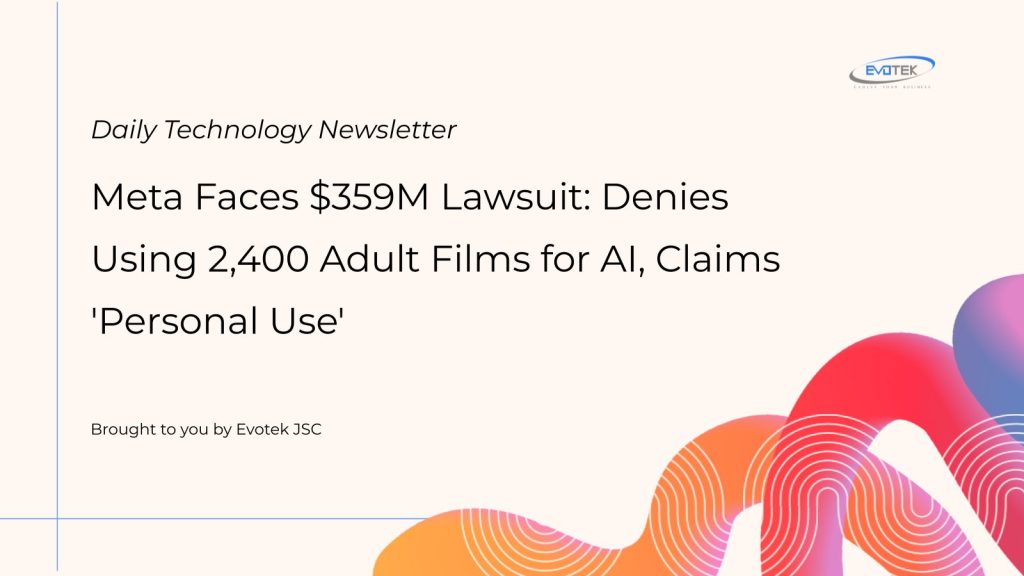Technology giant Meta is currently embroiled in a significant legal battle, vehemently denying accusations that it unlawfully downloaded and utilized over 2,400 adult films to train its artificial intelligence models. The social media titan asserts that any acquisition of such content was strictly for “personal use,” a claim facing intense scrutiny from a consortium of leading adult entertainment producers.
Adult Content Studios Allege Massive Copyright Infringement
A collective of prominent adult film studios, including the companies behind popular brands like Vixen, Tushy, Blacked, and Deeper, has launched a comprehensive lawsuit against Meta. These companies allege that Meta engaged in widespread copyright infringement by torrenting a vast library of their proprietary films. The core of their claim is that these films were subsequently fed into Meta’s AI systems as training data, a practice they contend is illegal and damages their intellectual property rights.
The studios are seeking an staggering $359 million in damages, arguing that Meta’s alleged actions represent a flagrant disregard for creators’ rights in the digital age. This sum aims to compensate for the unauthorized use of their copyrighted material and the potential competitive disadvantage created by Meta’s alleged use of their content to develop advanced AI.
Meta’s ‘Personal Use’ Defense Under Fire
In response to the serious allegations, Meta has issued a denial, asserting that any instances of the adult films being accessed were for individual “personal use” rather than corporate AI training. This defense has been met with skepticism, particularly given the sheer volume of content—2,400 movies—and the context of a major technology corporation developing sophisticated AI frameworks. Legal experts and industry observers are questioning the feasibility and credibility of a “personal use” argument when applied to such a scale within a corporate environment.
Broader Implications for AI and Intellectual Property
This lawsuit highlights the escalating tension between technology companies developing AI and content creators concerned about the unauthorized use of their work as training data. As artificial intelligence continues to evolve, the legal landscape surrounding intellectual property rights and fair use in AI development remains largely uncharted. The outcome of this case could set a significant precedent for how original content, especially copyrighted material, is sourced and utilized by AI developers globally. It underscores the urgent need for clear guidelines and regulations to protect creators while fostering technological innovation.

 日本語
日本語 한국어
한국어 Tiếng Việt
Tiếng Việt 简体中文
简体中文